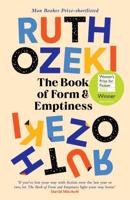Publisher's Synopsis
An international bestseller that sold more than 300,000 copies when it first appeared in 1852, Uncle Tom's Cabin was dismissed by some as abolitionist propaganda; yet Tolstoy deemed it a great work of literature 'flowing from love of God and man.'Today, however, Harriet Beecher Stowe's stirring indictment of slavery if often confused with garish dramatizations that flourished for decades after the Civil War: productions that relied heavily on melodramatic simplifications of character totally alien to the original. Thus 'Uncle Tom' has become a pejorative term for a subservient black, whereas Uncle Tom in the book is a man who, under the most inhumane of circumstances, never loses his human dignity.'Uncle Tom's Cabin is the most powerful and most enduring work of art ever written about American slavery,' said Alfred Kazin.








